20 Natural Antibiotic Foods To Add To Your Diet
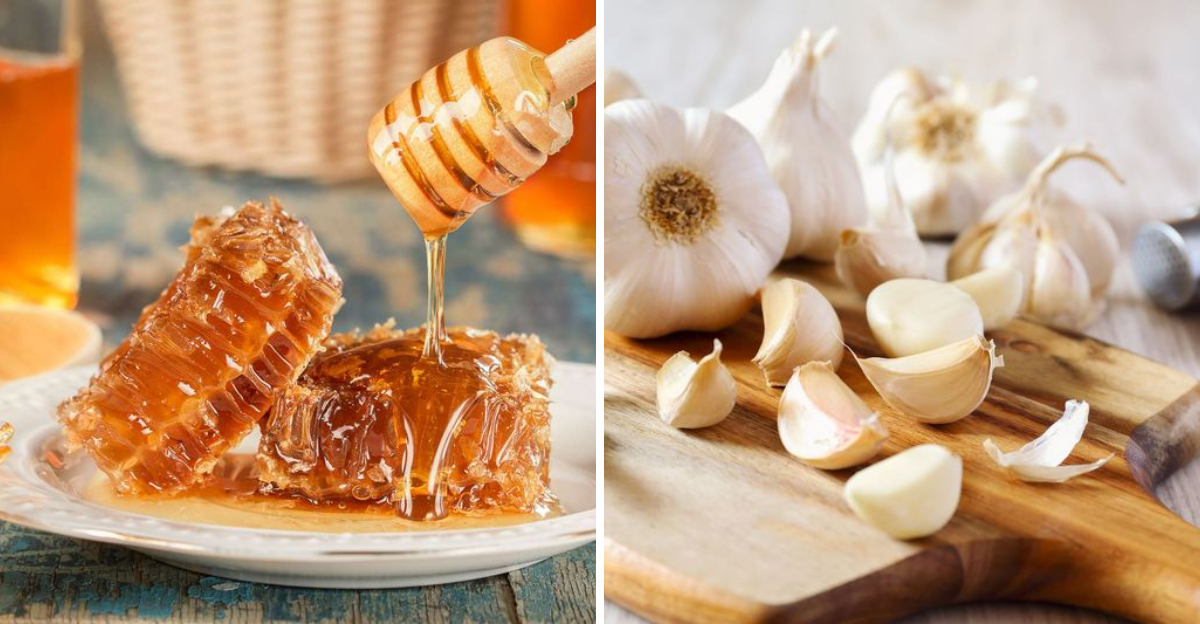
Here are 20 natural antibiotic foods that may help support your immune system and fight harmful bacteria. While they’re not replacements for prescribed medications when needed, these foods offer antimicrobial properties that can benefit your overall health when included regularly in your diet.
1. Garlic
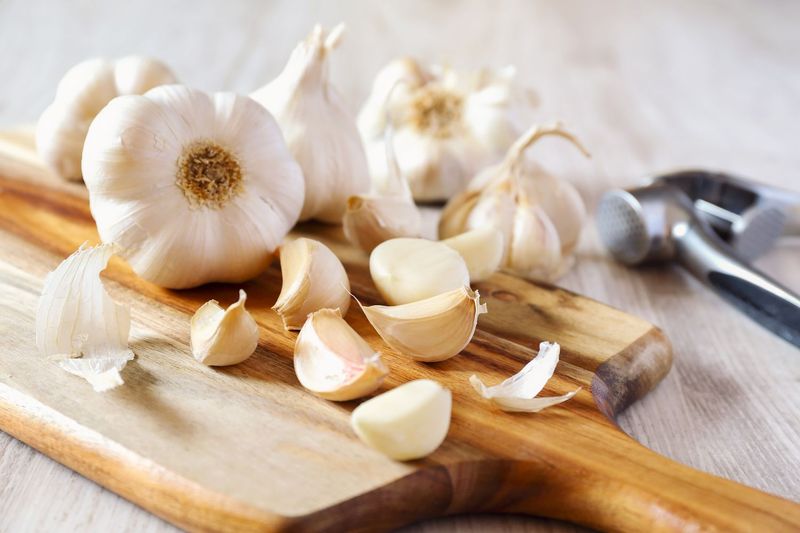
Garlic, a pungent and aromatic herb, is renowned for its potent antimicrobial properties, largely attributed to allicin. This compound is released when garlic is crushed or chopped, acting as a natural defense against infections. Historically, garlic was used in ancient civilizations to treat a variety of ailments and is still revered today. Whether added to recipes or consumed raw, garlic supports immune health and helps stave off colds and other infections. Its rich flavor enhances dishes, making it an essential kitchen staple. Include garlic in your diet to enjoy its robust health benefits.
2. Ginger
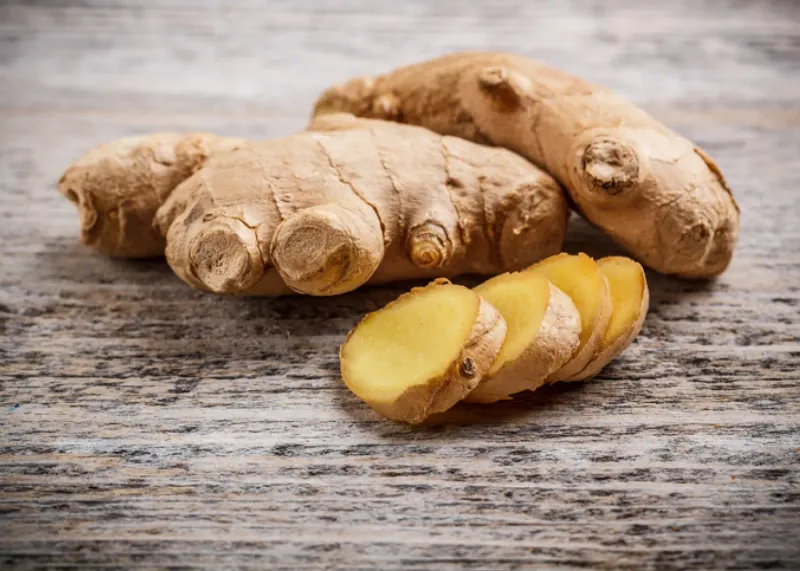
Ginger’s warm, spicy aroma and flavor make it a beloved ingredient in many cuisines. Beyond its culinary appeal, ginger boasts natural anti-inflammatory and antimicrobial properties, making it a valuable addition to your diet. It’s known to soothe digestive issues and may help combat bacterial infections. Enjoy ginger in teas, smoothies, or savory dishes for a zesty kick that supports your immune system. Its versatility and health benefits make it a kitchen favorite. Don’t forget to keep this rhizome handy for culinary and medicinal purposes.
3. Raw Honey
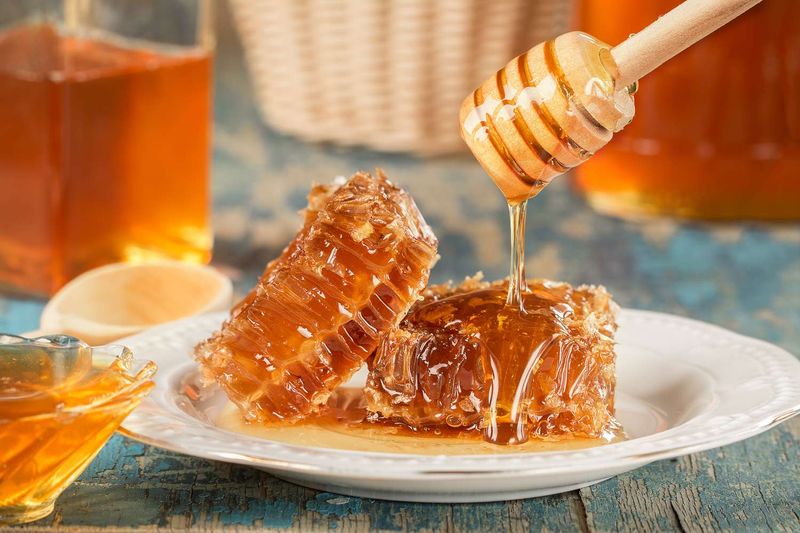
Raw honey, especially manuka honey, is nature’s sweet remedy, offering more than just delightful taste. It contains natural enzymes that produce hydrogen peroxide, providing strong antibacterial effects. This sticky, golden nectar has been used for centuries to heal wounds and combat infections. Its thick consistency and rich sweetness make it perfect for adding to teas or drizzling over yogurt. Incorporate raw honey into your diet to enjoy its natural healing properties while satisfying your sweet tooth. It’s a delicious way to nurture your health.
4. Onions
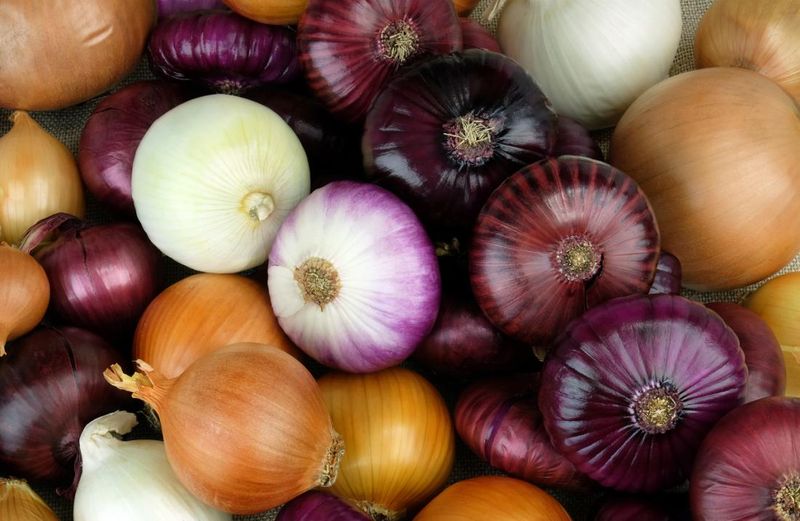
Onions, close relatives of garlic, pack a powerful punch with their robust antibacterial and antioxidant properties. Known for their pungent flavor and aroma, onions add depth to countless dishes. Consuming them raw or lightly cooked maximizes their health benefits. Onions contain sulfur compounds that boost immunity and combat harmful bacteria. From soups to salads, onions are a versatile ingredient that enhances flavor and supports your health. Keep a stash of these bulbous wonders in your kitchen for both culinary and medicinal purposes.
5. Oregano
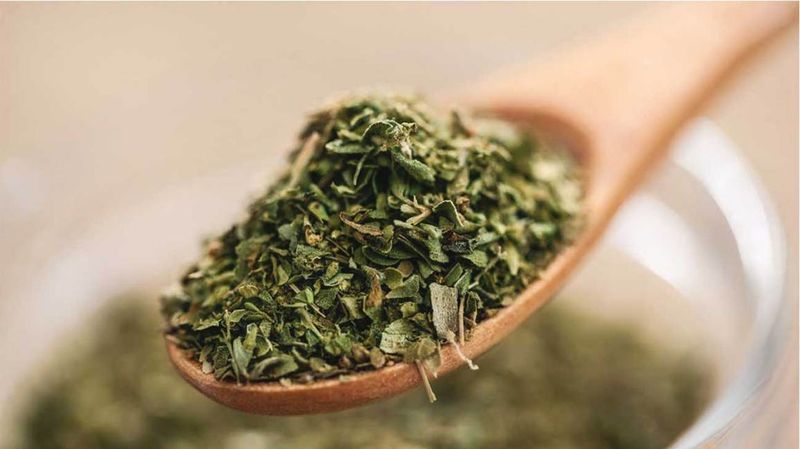
Oregano, a fragrant herb, is a staple in Mediterranean cuisine, prized for its robust flavor and antimicrobial properties. Its essential oil contains carvacrol and thymol, compounds effective against various bacterial strains. Oregano’s earthy, slightly peppery taste enhances sauces, marinades, and more. Beyond culinary uses, oregano supports respiratory health and can be used in teas or essential oil form for additional benefits. This herb’s versatility and health-promoting qualities make it a must-have in your kitchen garden.
6. Turmeric

Turmeric, known for its vivid golden color and earthy flavor, is a powerhouse of health benefits. The active compound, curcumin, offers potent antimicrobial and anti-inflammatory effects. Traditionally used in Indian and Asian cuisines, turmeric adds warmth and depth to dishes. Pairing turmeric with black pepper enhances curcumin absorption, maximizing its benefits. Beyond curries, try turmeric in smoothies or as a latte for a health boost. This colorful spice not only delights the palate but also fortifies the immune system.
7. Apple Cider Vinegar

Apple cider vinegar, a tangy and versatile ingredient, boasts impressive antibacterial properties due to its acetic acid content. This fermented liquid has been used for centuries to aid digestion and balance the gut. A splash of apple cider vinegar in salads or drinks adds a zesty twist while supporting your health. Its ability to combat harmful bacteria and improve digestion makes it a valuable addition to your pantry. Incorporate apple cider vinegar into your diet to enjoy its health-boosting effects.
8. Cinnamon

Cinnamon, a beloved spice known for its sweet and warm flavor, has been valued for centuries for its medicinal properties. Its natural oils, rich in cinnamaldehyde, offer antibacterial and antifungal effects. Sprinkle cinnamon on oatmeal or add it to hot beverages for a cozy, health-boosting treat. This versatile spice not only delights the senses but also aids in combating infections. Its presence in both sweet and savory dishes makes cinnamon a kitchen staple. Enjoy cinnamon’s comforting aroma and health benefits in various culinary creations.
9. Cloves
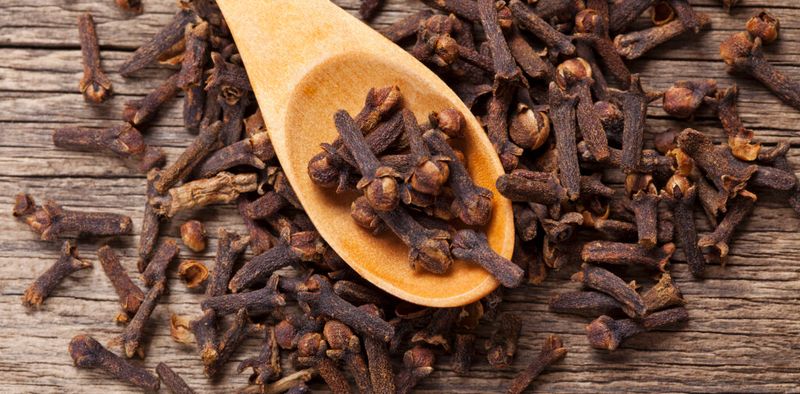
Cloves, with their intense aroma and warm, spicy flavor, have been used traditionally for their medicinal properties. The essential oil of cloves contains eugenol, which exhibits strong antibacterial and antiviral activities. Ground cloves add a rich depth to baked goods, while whole cloves can enhance savory dishes and beverages. Beyond culinary applications, clove oil is used in dental care for its analgesic properties. Incorporating cloves into your diet can provide a flavorful boost while supporting overall health and wellness.
10. Thyme
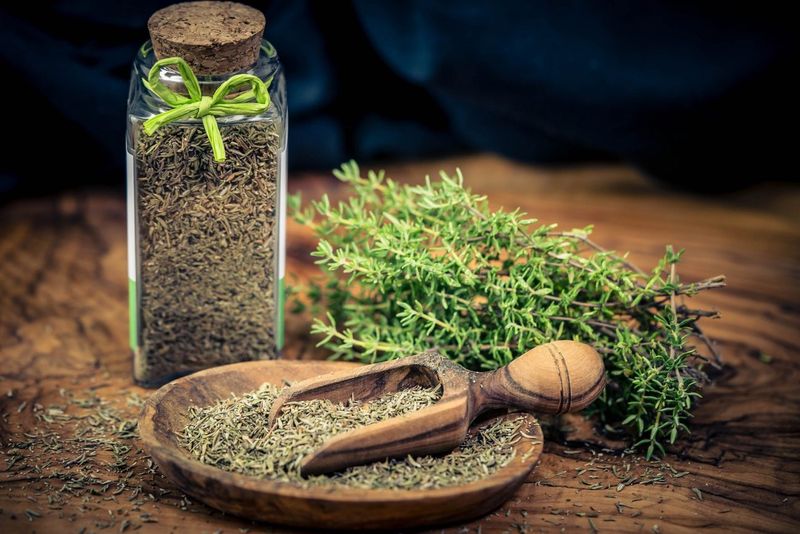
Thyme, a fragrant herb with tiny leaves and woody stems, is celebrated for its culinary and medicinal virtues. Rich in thymol, thyme’s essential oils boast strong antiseptic and antibacterial properties. This herb adds an earthy flavor to soups, stews, and roasted dishes, enhancing both taste and health. In addition to culinary uses, thyme can be infused in teas for respiratory support. Its aromatic and therapeutic qualities make thyme an essential addition to any herb garden, providing a natural defense against ailments.
11. Cabbage

Cabbage, a crunchy cruciferous vegetable, is not just a staple in salads and slaws. It contains sulfur compounds that aid in detoxification and support gut health, offering potential antimicrobial benefits. Whether enjoyed raw, fermented, or cooked, cabbage provides a hearty dose of fiber and nutrients. Its versatility in the kitchen makes it easy to incorporate into a variety of dishes, from soups to stir-fries. Including cabbage in your diet can help bolster your body’s defenses and improve overall well-being.
12. Fermented Foods
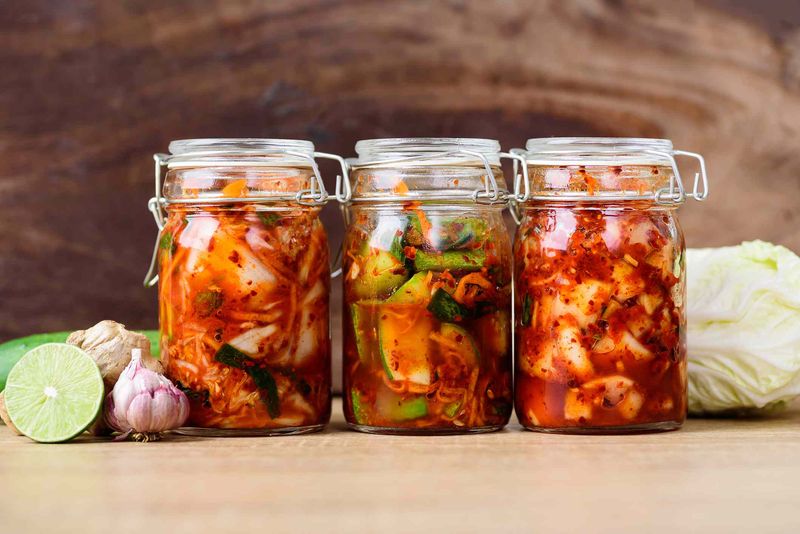
Fermented foods, like kimchi, sauerkraut, kefir, and yogurt, are teeming with probiotics that support a healthy gut microbiome. This microbial community plays a crucial role in immune defense and overall health. The tangy flavors and diverse textures of fermented foods make them delightful additions to meals. Incorporating them into your diet can enhance digestion and fortify your immune system. The natural fermentation process not only preserves these foods but also intensifies their health benefits, making them an important dietary staple.
13. Coconut Oil
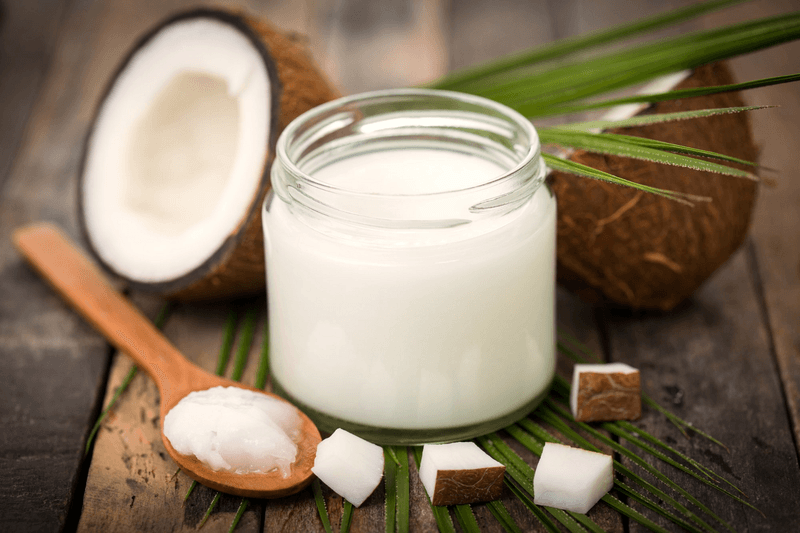
Coconut oil, revered for its smooth, creamy texture and subtle flavor, has gained popularity for its health-promoting properties. It contains lauric acid and monolaurin, compounds that have shown effectiveness against harmful bacteria and viruses. Use coconut oil in cooking or baking for a tropical twist that supports immune health. Its versatility extends beyond the kitchen as it’s also used in skincare and haircare. Embrace coconut oil as a multifaceted health ally in your daily routine, both inside and out.
14. Echinacea

Echinacea, a flowering plant with striking pink petals, is often associated with immune support, particularly during cold and flu season. Its mild antimicrobial properties make it a popular choice for herbal remedies. While echinacea is more commonly found in supplement form, its natural beauty can be appreciated in gardens. Enjoying echinacea tea or tinctures can provide a gentle boost to your body’s defenses. This vibrant bloom not only enhances your garden but also contributes to your health and well-being.
15. Horseradish
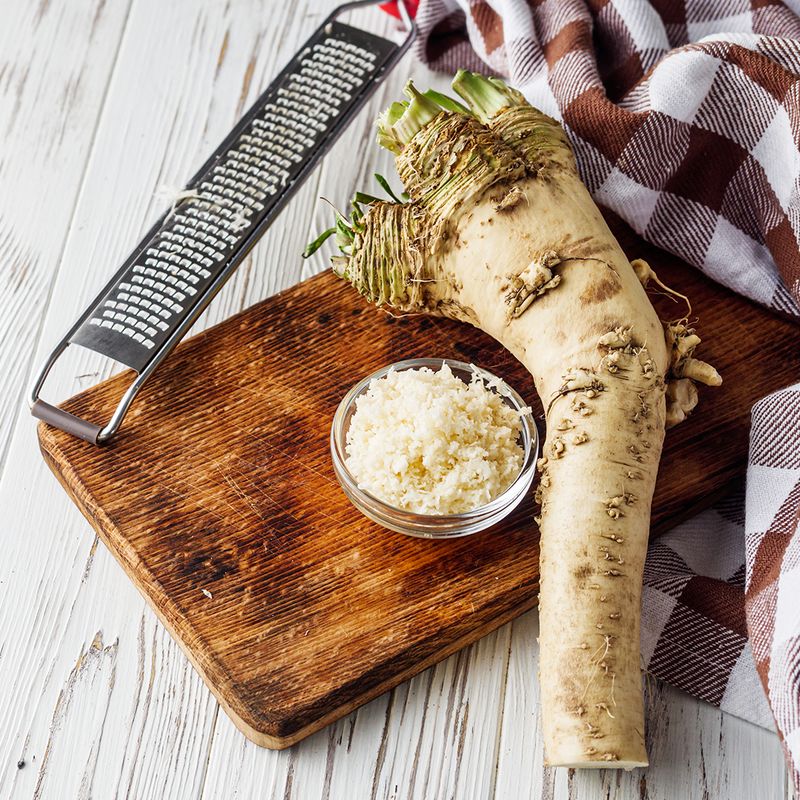
Horseradish, with its pungent and fiery flavor, is more than just a condiment for meats. This hardy root contains compounds that may break up mucus and provide antibacterial qualities. Its sharp, spicy kick can invigorate dishes and clear the sinuses. Grate fresh horseradish into sauces or use it to add zing to your favorite recipes. Beyond its culinary uses, horseradish’s health benefits make it a valuable addition to your diet. Keep this robust root on hand for both flavor and wellness.
16. Lemons
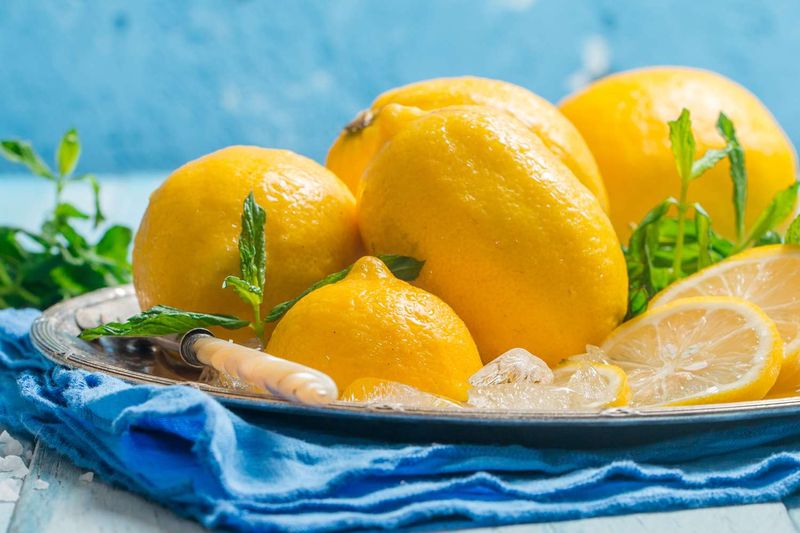
Lemons, with their bright color and zesty aroma, are not only refreshing but also health-promoting. Rich in vitamin C and citric acid, lemons support immune function and may inhibit certain bacterial growth. Their tangy flavor can enhance drinks, dressings, and desserts. Drinking lemon water is a popular way to enjoy its cleansing properties. Incorporate lemons into your daily routine for a vibrant and healthful boost. This citrus fruit is a staple for both flavor enhancement and immune support.
17. Cranberries
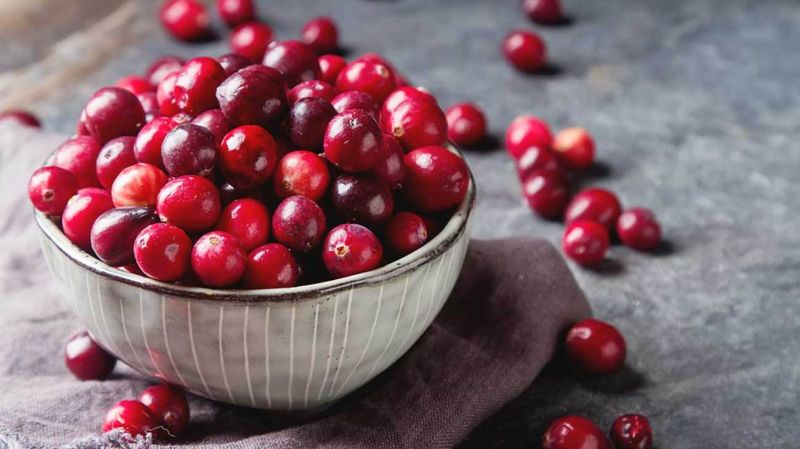
Cranberries, small but mighty fruits, are renowned for their role in preventing urinary tract infections. Their unique compounds prevent bacteria from adhering to the bladder wall, promoting urinary health. These tart berries can be enjoyed fresh, dried, or in juice form. Adding cranberries to your diet not only supports health but also adds a burst of color and flavor to meals. Whether in sauces, salads, or baked goods, cranberries offer a delightful and nutritious way to support your well-being.
18. Green Tea

Green tea, with its light and refreshing taste, is a cherished beverage worldwide. Rich in catechins, this tea offers antimicrobial properties that may help inhibit the growth of certain bacteria and viruses. Sipping on green tea provides a soothing ritual while contributing to overall health. Enjoy it hot or iced, with a slice of lemon or a touch of honey for added flavor. Incorporating green tea into your daily routine can provide a gentle yet effective boost to your immune defenses.
19. Mushrooms
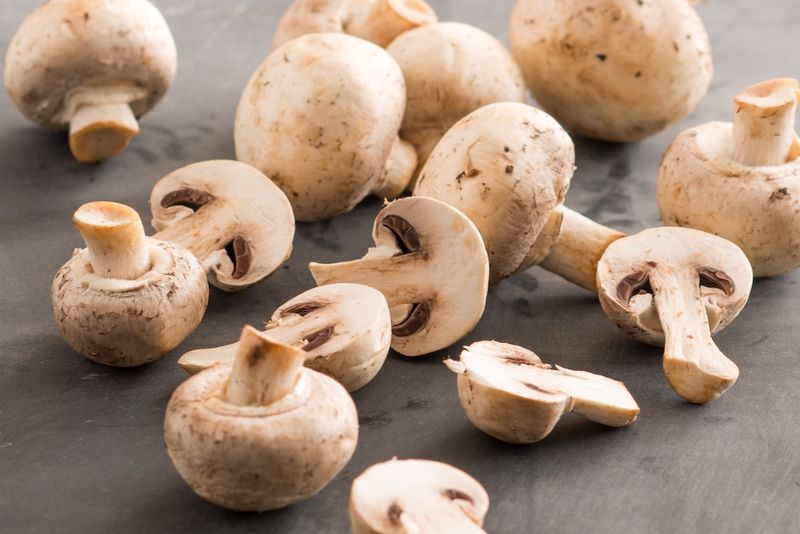
Mushrooms, especially varieties like shiitake and maitake, are more than just culinary delights. They contain beta-glucans and other compounds that support immune function and exhibit antimicrobial properties. These earthy fungi add depth to soups, stir-fries, and pasta dishes. Beyond their savory flavor, mushrooms offer a nutritious boost to your diet. Whether enjoyed fresh or dried, mushrooms are a versatile and health-promoting ingredient. Embrace the natural goodness of mushrooms for their unique taste and health benefits.
20. Black Cumin Seed
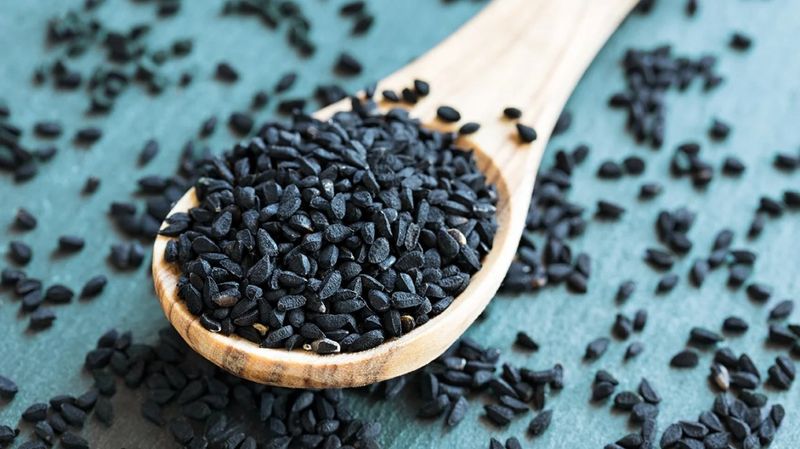
Black cumin seed, also known as Nigella sativa, is celebrated for its potent flavor and health-promoting properties. The seeds and their oil have been studied for antibacterial and antiviral effects. Sprinkle black cumin seeds on salads or use the oil in dressings to enhance flavor and health. This tiny seed packs a powerful punch, providing a natural boost to your immune system. Embrace black cumin seed as a flavorful and healthful addition to your culinary repertoire.
